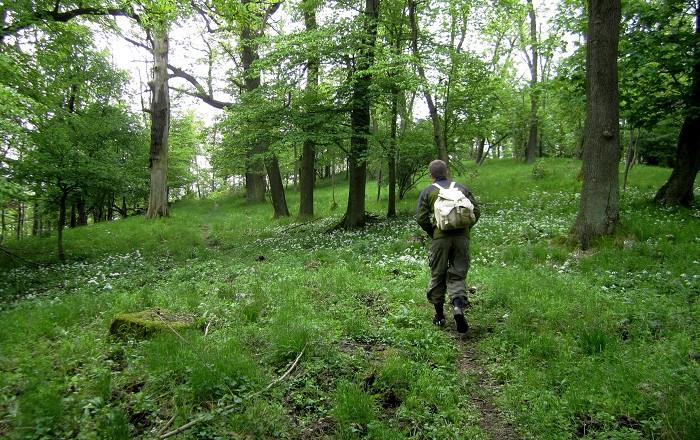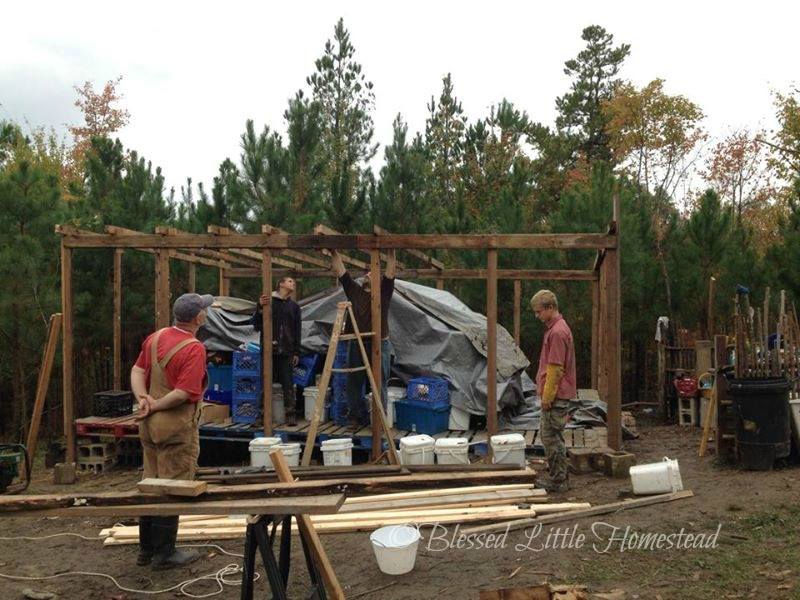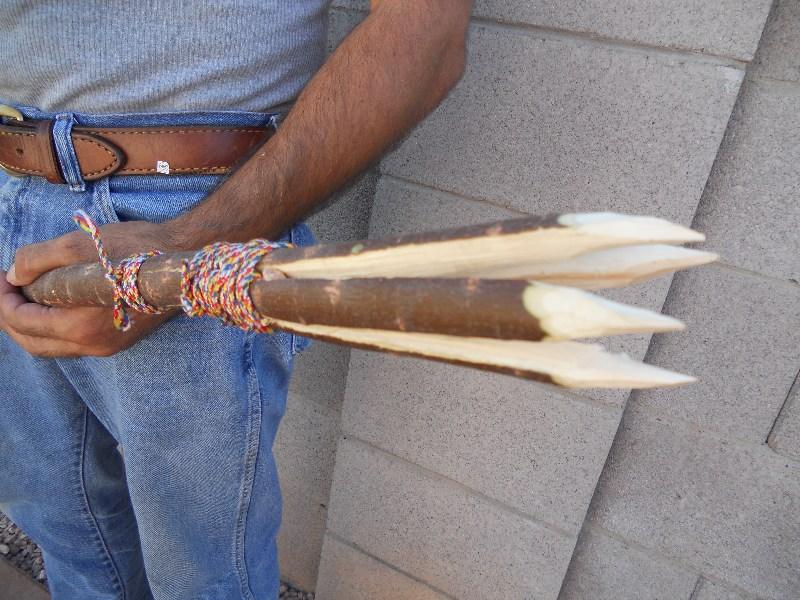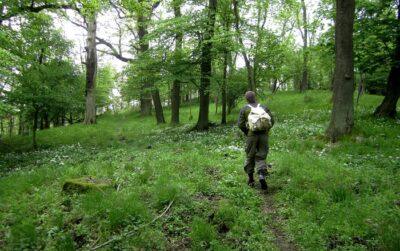
After having been in the survivalist business since 2007, there was always this one issue that I seemed to run into on an oddly regular basis. I was all about buying survival gear, and believe me when I say, you can drop LOADS of cash on that stuff. Especially if you’re trying to purchase only items that are durable enough to last through, say, the apocalypse.
But here’s the problem: if you’re trying to prepare for a long-term survival or bunker scenario, then you DON’T want survival gear, per se. Sure, that might be able to get you through a short-term pinch. But in the long run, that category of gear just won’t be sufficient for your particular needs.
And that’s why I began to study bushcraft once I noticed the difference between the two categories.
The Difference Is In the Scenario
Yes, there’s certainly a major difference between those two categories of wilderness self-reliance/sustenance living. Essentially, I tend to break it down like this:
- Survival(craft) – This is the type of gear needed during a desperate, unplanned 72-hour scenario, helping you stay alive in less-than-optimal conditions, such as having minimal gear or sustained injuries. The main objective is beyond just survival, as you will eventually need to make it back home, either via search and rescue teams, or your own navigational capacity.
- Bushcraft – This is completely different, but many of the skills and tools in survivalcraft are based on those, which had originated from the African-born art of bushcraft. Essentially, the reason for studying, practicing and acquiring gear for bushcraft is not for the mere objective of staying alive in the wilderness … but rather to exist and thrive there.
So basically, in survivalcraft, you’re stuck in the wilderness and need to find civilization so that you can get back home alive.
Ultra-Efficient Water Filter Fits In Your Pocket!
In bushcraft, you’re in the wilderness because you felt stuck in civilization. And you feel quite at home and at peace in the backwoods. (Not to mention you’ve got some strips of rabbit meat on the smoking rack at the moment and it’s almost all done drying out. Good thing you brought that small tin of homemade spices, because that jerky will need a dash of salt n’ pepper before it can be called “delectable”).
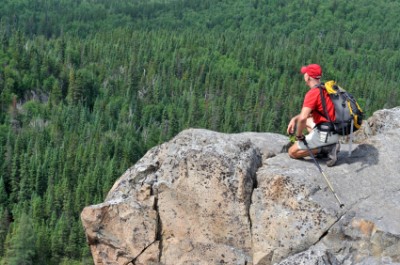 Sure, these two wilderness existence categories can mesh in MANY aspects, but where they differ most comes down to the overall reason for finding yourself in the backcountry in the first place.
Sure, these two wilderness existence categories can mesh in MANY aspects, but where they differ most comes down to the overall reason for finding yourself in the backcountry in the first place.
Why This Should Matter To You
This matters for several reasons and it took me about five years (and quite a few dollars) to realize that I had been trying to accomplish two different tasks, thinking they were the same one. Consider these facts:
- Most survival gear is made to be disposable, single-use, or optimal only over a period of 72 hours. Bushcraft gear is made to last pretty much forever and ever.
- The methodology side of survivalcraft is largely equipment-oriented, whereas bushcraft is knowledge-oriented. For example:
- In survivalcraft, you’d break out the first-aid kit and dab some antibiotic ointment on a small cut (because you were darn smart for packing it in).
- As for bushcraft, you’d go and get your stash of wild medicinal herbs and use the antiseptic ash from burned cattails.
- In bushcraft, while you might have a whole bunch of camp tasks to accomplish while the sun’s still up, you’re not in much of a rush. You’re a pretty happy camper, aside from the fact that it’s your turn to dig the new latrine this time. In survivalcraft, there is NO time. You’re not there on purpose, which means that you’ve probably sustained injuries in getting there, you’re lost (and possibly dehydrated), or you’re inadequately clothed to handle the dropping nighttime temps.
- Much of bushcraft methodology is taken from experimental archaeology and is largely based upon the old way of wilderness/frontier existence out of appreciation for historical lifestyles and ye olde legends. Survivalcraft is largely based on military methods, rationale and strategy. Which is likely why the main objective is to hook up with “evac” or hoof it back to friendly territory.
Why Study Survival(craft)?
Survivalcraft teaches you to think calmly during a crisis and be able to handle minor injuries. It also teaches you how to keep hydrated, maintain the body’s core temperature at a healthy 98.6, use basic navigational skills, and ultimately signal for rescue so you can make it back home alive.
Why Study Bushcraft?
You’ll be using bushcraft within a couple days after you’ve finally made it to your bugout location or established homestead retreat. At this point, the survival-phase is over and the existence-phase has begun. So, this is when you begin to build sturdy shelters and traplines, identify wild edibles and medicinals, check the area for tracks and game, and basically set up your new home away from the one that just got raided by an APC full of troops fresh outta’ Moscow.
(Read our earlier story, Wilderness Medicine When You’re Sick And Desperate.)
During this phase of your bugout, it’s now about the long game, thinking ahead of nature’s challenges (and possible encounters with two-legged crazies). At the same time, you can now slow down a bit and create a longer-term strategy. And yes, you can probably throw away that giant, tanto-serrated, foot-long, $11.99 survival-tactical knife, because it’s pretty much going to be useless out there unless you run into zombie mall ninjas … along with Sasquatch … and Elvis.
The Secret To Starting Fires In Even The Most Extreme Conditions
Of course, you could always study bushcraft because it’s a great way to enjoy nature and build community with other bushcrafters. That tends to be the most common reason to get into it.
Which Should Be Your Forte’?
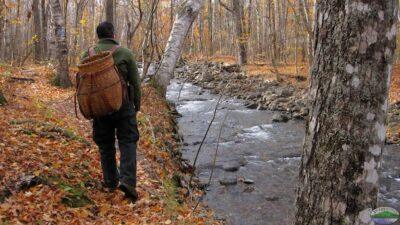
My best advice for newbie survivalists and bushcrafters would be this: if you go into these studies with a preference for one and not the other then you’re going to handicap your skillset and short yourself on the gear that you’ll likely come to need. It’s best to have a pretty darn good handle on both fields of study because in a crisis-chaos scenario, you are probably going to need BOTH.
The reason why I simply decided to explain the differences between the two areas of study is so you’re better able to strategize your purchases and DIY projects in advance. This way, you can avoid purchasing an overly-expensive survival pack thinking that it’s supposed to be built to last like a bushcraft pack.
A survival kit only needs to last about 72 hours, so you don’t have to spend oodles of cash on the top brand-name stuff. And if anything, it needs to be lightweight (so you can cover greater distances on foot), yet just durable enough to get the job manageably done for the next three days.
For a bushcraft pack, it’s a whole different philosophy: it must endure. That means it will be made of heavy canvas, steel and leather. (Mine happens to be a lovely Norwegian Bergen pack, which you can usually buy at any military surplus store. Though admittedly, she still needs a little DIY-love and canvas patches to get her where she needs to be). Since you’re not in a desperate scenario and time is NOT of the essence, then you can afford to cover a little less distance on your trekking/scouting excursions due to the added weight.
So in review: Yes, I believe that you should get to know both survivalcraft and bushcraft if you’re just starting out. Just make sure that you’re aware of the differences between the two areas of study BEFORE you start dropping cash on gear. It’s such an easy mistake to make, trust me.
At the end of the day it’s better to have knowledge on your side. It weighs nothing and will direct you to the exact gear that fits your own system and purposes like a glove.
Could You ‘Live Off The Land’ With Your Gun? Read More Here.


